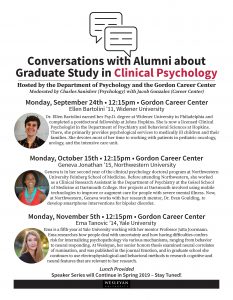Uncategorized
WES AFAM turns 50!
Wes AFAM Turns 50
Talks and Events on Blackness, Race, Sexuality and Power
Fall 2018
“Solidarity, Intersectionality, & Resisting Oppression”
Feminist philosopher Carol Hay
September 20th at 4:30
Russell House
Sponsored by Philosophy Department
Boukman Eksperyans & Paul Beaubrun – Haitian Music
September 20th at 7pm
Nic Lounge
Sponsored by African American Studies and Music
Raphael Xavier: Point of Interest
September 21st at7:30pm
CFA Theater, tickets needed
Sponsored by Center for the Arts
Kahlil Robert Irving: “Street Matter — Decay & Forever / Golden Age” Opening Reception
September 26th from 4:30pm to 6pm;
Conversation: Kahlil Robert Irving and Professor Tony Hatch at 5pm
Zilkha Gallery
Cosponsored by Center for the Arts and Center for African American Studies
Book Talk on Familiar Perversions: The Racial, Sexual, and Economic Politics of LGBT Families
Liz Montegary, SUNY Stony Brook
September 26th at 4:30pm
Judd 116
Sponsored by Queer Studies
Dwight L. Greene Symposium
“Black Phoenix Rising”
Tony Hatch, Wesleyan Professor with students
September 29th at 3:45pm
Daniel Family Commons
“The Illusion of Equality in Kantian Cosmopolitanism”
Jameliah Bournahou, Georgia College
October 2nd at 4:30pm
Downey 113
A Theory Certificate Lecture
The Annual Richard Slotkin Lecture In American Studies
“Why Gender and Race Studies Scholars Must Intervene in Security Studies”
Inderpal Grewal, Yale University
October 4th at 4:30pm
Russell House
Sponsored by American Studies and the Center for the Americas
“Civil Rights, Civil Wrongs” Symposium
October 6th from 9am -4pm, registration required to attend. Free for 20 students (contact JSteele@wes)
Shanklin 107
Co-sponsored by Wesleyan Institute for Lifelong Learning and the Center for African American Studies
Sorry to Bother You
Film screening with post-film discussion led by Prof Casey Hayman
October 12th at 8pm
Goldsmith Family Cinema
Sponsored by Center for Film Studies and African American Studies
Oceanic Feelings in the Anthropocene: Ellen Gallagher’s Rising (Black) Atlantic
Heather Vermeulen, Andrew Mellon Post Doc, Wesleyan
October 15th at 6pm
Daniel Family Commons
Sponsored by Center for the Humanities and African American Studies
Populism and Bigotry: Lessons from the 1920s Ku Klux Klan
Linda Gordon, New York University
October 16th at 11:50am
PAC 422
Hosted by the History Department
AMST 50th Anniversary Symposium
November 2nd from 12-6pm
Powell Theater
Hosted by American Studies with African American Studies
FGSS Annual Symposium
A conversation about HIV/AIDS and its histories, Black lives and health, queer historiographies, and writing practices
Panelists are Linda Villarosa, City College of New York and Khary Polk, Amherst College
November 2nd at noon
Sponsored by FGSS
Embodied Engineering: Gender, Technology and Body Politics in Mali (West Africa)
Laura Ann Twagira, Wesleyan University
November 5th at 6pm
Daniel Family Common
Sponsored by Center for Humanities
Studies Soulful Thanksgiving, Workshop and Dinner
November 16th at 3pm
Malcolm X House Lounge
Hosted by the Center for African American Studies
Refuse Bodies and the Technologies of Waste Production in the Transatlantic Slave Trade
Marisa Fuentes, Rutgers University
November 26th at 6pm
Daniel Family Commons
Sponsored by Center for Humanities
Whither Fanon?: Studies in the Blackness of Being
David Marriott
December 6th at 4:30pm
Russell House
Co-sponsored by Philosophy and African American Studies
West African Drumming and Dance
December 8th at 7pm
CFA Crowell Concert Hall (CFA B) Crowell Concert Hall
ITS Review: Student Perspectives Wanted
Pizza (or cookies) for your thoughts?
ITS is undergoing an external review. We have hired an outside firm that specializes in working with higher ed institutions to help us:
Gain a fresh perspective on our use and management of technology
Identify opportunities to design future ITS services
Assess ITS service delivery mechanisms, practices, and development
Make best use of our ITS resources
Student input is important to this process and the consultants have setup two open forums for students:
Monday, Sep 17, 12:10-1:20 South College B2/B3 Pizza will be served
Tuesday, Sep 18, 3:00-3:45 South College B2/B3 Cookies will be served
Drop by either one to share your thoughts. The consultants will be asking questions to get your feedback.
Thank you!
Dave Baird
VP ITS and CIO
Karen Warren
Deputy CIO
Wesleyan University | ITS
265 Church Street | Middletown, CT 06459
P. 860 685-3584
ACCELERATE YOUR JOB SEARCH!
Accelerate: Prepare for Fall Recruiting
Friday, September 14th • 10am – 1pm
Lunch Provided
Accelerate is a job search boot camp for seniors and juniors planning on applying for positions via the Gordon Career Center’s Fall On-Campus Recruiting program. It is intended to provide you will real time guidance in order to prepare for interviews and evaluate offers of employment. Lunch will be served and will include Q&A with GCC staff. The workshop will be led by the Director of the Gordon Career Center, Sharon Belden Castonguay.
Register on Handshake: https://wesleyan.joinhandshake.com/events/186290/share_preview
Last chance to join MUSC 241!
Employing approaches as diverse as the music it celebrates, MUSC 241 investigates the theories and sounds of medieval and Renaissance musicians. It addresses a broad spectrum of issues, such as the status of musicians, the politics of religion, experimentation, and the construction of alternative identities. It balances overarching narratives with extensive profiles on some of history’s most creative musicians and their lasting influence.
It’s not too late to join! MUSC 241 usually fulfils a Hist/Culture requirement for the Music major, but I can adjust the assignments if you would rather it fulfil a Theory or even a MUSC 300 seminar requirement for the major. MUSC 241 can also accommodate students in other majors, looking for another Arts and Humanities credit at the 200 level.
Please let me know of your interest ASAP and we can discuss a way for you to catch up and start to participate.
Jane Alden
New section of DANC 111
Due to high student interest we have added a NEW section of Introduction to Dance!
The NEW SECTION of INTRODUCTION OF DANCE: DANC 111 (SEC 3)
Monday/Wednesday, 2:50-4:20PM in Schonberg Dance Studio AT 247 Pine Street.
Taught by Professor Pedro Alejandro, palejandro@wesleyan.edu
If you are interested, please attend MONDAY OR contact Professor Alejandro by email to express your interest and intention
If you join, you will not have missed any classes!
New Dance courses!!
DANC 213 – JAZZ TECHNIQUE .5 credit
TUESDAYS/THURSDAYS 6:30 – 8:10 PM @ 247 Pine Street / SCHONBERG DANCE STUDIO
This course is an introduction to the African American jazz dance vernacular through the embodied practice of Simonson jazz. It will cover basic principles of alignment, centering, and technique through the context of jazz’s African roots. Class sessions will principally consist of movement exploration including a comprehensive warm-up and will be supplemented by online discussions and media to better understand the place of jazz dance in society and culture at large.
With JOYA POWELL, Visiting Assistant Professor, Dance (jpowell01@wesleyan.edu)
DANC371 Site Specific Dance Making, 1 credit
TUESDAYS/THURSDAYS 2:50 to 4:20
This course addresses the construction of contemporary performance in alternative, nontheatrical spaces. Students will create, design, and structure movement and image metaphors; design and realize scenic objects; and integrate technologies that enhance performance at large. Daily practice will focus on developing compositional tools to trigger events, to set off the performance space, and to create optimal conditions for audience and performer participation. Skills in movement observation, critical reading, and video analysis will inform the course’s practical and historical frameworks.
With Pedro Alejandro (palejandro@wesleyan.edu)
Bharata Natyam dance course: students needed!
Bharata Natyam II: Embracing the Traditional and the Modern
Taught by Prof. Hari Krishnan
M/W 1.20-2.40pm
This advanced course is designed to further students’ understanding of the technique, history, and changing nature of Bharata Natyam dance and of Indian classical dance in general. The primary aim of the course is to foster an understanding of the role, function, and imaging of Bharata Natyam dance vis-à-vis ideas about tradition and modernity. Although the course assumes no prior knowledge of Bharata Natyam, we will move rapidly through the material. We will focus mainly on more complex studio work, extensive readings, and video presentations. In preparation for this course, students should have movement experience in other dance tradition(s). Occasionally, the class could include a guest lecture given by either a visiting scholar, dancer, or choreographer respected in the field of South Asian dance internationally.
New Course: Black Speculative Fictions and the Anthropocene
CHUM 302
Fall 2018
Section: 01
Crosslisting: AFAM 312, E&ES 125, FGSS 301
Certificates: Social, Cultural, and Critical Theory
Course Cluster: Queer Studies
The genre of black speculative fiction–in the form of literature, art, music, and theory–provides a generative framework through which to (re)think understandings of race, gender, sexuality, class, the body, disability, citizenship, and the human. Often couched as taking place in the “future,” black speculative fictions also engage the past and critique the present. This makes the genre a critical resource for addressing the Anthropocene. The term “Anthropocene” first emerged from the discipline of geology in 2000. Scientists proposed that Earth had entered a new epoch (following the Holocene) in which “humans” had become geological forces, impacting the planet itself. However, the term Anthropocene raises numerous questions. What does it mean to think about the human at the level of a “species”? What constitutes evidence of the Anthropocene and when did it begin? Who is responsible for the Anthropocene’s attendant catastrophes, which include earthquakes, altered ocean waters, and massive storms? Does the Anthropocene overemphasize the human and thus downplay other interspecies and human-nonhuman, animate-inanimate relations? Or does it demand a (potentially fruitful) reconceptualization of the human? Further, how does artificial intelligence complicate definitions of the human and, by extension, of the Anthropocene? Centering the work of black speculative thinkers and placing it in conversation with scientific studies ranging from marine biology and geology to cybernetics, this course takes an interdisciplinary approach to the Anthropocene that endeavors to (re)conceptualize the human, ecological relations, and Earth itself. Texts engaged will include: novels, art, music, theory, and scientific studies.






